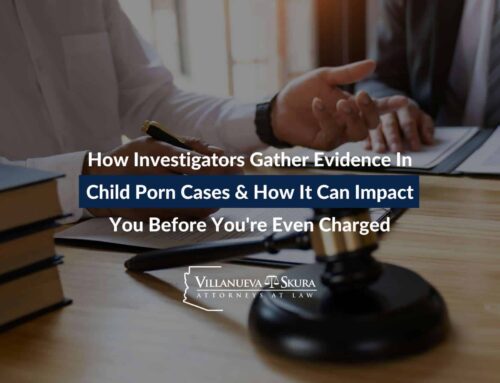Can I Be Charged With Sexual Assault If We Didn’t Have Sex?
Key Strategies to Defend Yourself Against Sexual Assault Allegations
When it comes to sex crime accusations, many people wonder if they can be charged with sexual assault when they did not have sexual intercourse. The simple answer is yes. You can be charged with sexual assault for a variety of reasons without having intercourse.
Legal definitions can vary significantly, so it is crucial to get in contact with a sex crimes lawyer who can help you understand the specific laws in your area. Regardless, any non-consensual sexual act can potentially be classified as sexual assault and lead to criminal charges.

Understanding Sexual Assault: Definitions & Examples
Sexual assault is a broad term that encompasses various forms of non-consensual sexual activity. The exact definition can vary by jurisdiction, but generally, sexual assault includes any unwanted sexual contact or behavior that occurs without the explicit consent of the recipient.
Our experienced Phoenix sex crimes lawyers will tell you sexual assault typically includes three specific elements. It is non-consensual, it includes sexual contact and the perpetrator must act with the intention or knowledge that their actions are non-consensual. The sexual contact can be intercourse as well as the following acts:
- Touching: Unwanted touching of the victim’s body, including genitals, breasts, buttocks, or any other intimate parts.
- Penetration: This can involve any form of penetration, however slight, of the victim’s body (vagina, anus, or mouth) by a body part or object.
- Sexual Acts: This can include forced sexual acts, such as oral sex or masturbation.
Specific examples of sexual assault include:
- Rape: Non-consensual penetration of the vagina, anus, or mouth by a penis, object, or other body part.
- Molestation: Inappropriate touching or fondling of a person’s intimate parts without their consent.
- Groping: Unwanted touching or grabbing of someone’s body in a sexual manner.
- Sexual Coercion: Using treats, manipulation, or intimidation to compel someone to engage in sexual acts against their will.
- Forced Kissing: Kissing someone without their consent.
Legal Definitions of Sexual Acts & Variations
While the general concept of sexual assault is consistent, specific legal definitions can vary by jurisdiction and a sex crimes lawyer can help you determine the laws in your area. For example, in Arizona:
- ARS 13-1406: Defines sexual assault as intentionally or knowingly engaging in sexual intercourse or oral sexual contact with any person without their consent.
- ARS 13-1404 (Sexual Abuse): Covers non-consensual sexual contact that does not rise to the level of intercourse or oral sexual contact.
- ARS 13-1402 (Indecent Exposure): Involves exposing one’s genitals to another person without their consent in a manner likely to cause offense or alarm.
Consequences of Sexual Assault: Penalties & Legal Implications
The penalties for sexual assault between adults are severe and vary depending on the jurisdiction, the specifics of the offense and any aggravating or mitigating factors. In Arizona, sexual assault is classified as a Class 2 felony. The specific penalties for sexual assault, not involving minors, are:
- Imprisonment: First-time offenders can typically expect a prison sentence between 5.25 and 14 years. If there are aggravating factors, the prison sentence can be extended up to 21 years.
- Sex Offender Registration: Individuals convicted of sexual assault must register as sex offenders where they must regularly report to local law enforcement, they are restricted on where they can live, and they must notify the community of their status.
- Fines & Restitution: Courts may impose significant fines and order restitution to the victim, covering costs related to the assault.
- Probation: In some cases, probation may be granted with strict conditions, but this is less common for serious offenses.
- Additional Penalties: Convictions can also lead to loss of civil rights, such as the right to vote or own firearms, and long-term impacts on personal and professional life.
Defending Against Sexual Assault Charges: Common Legal Strategies
Even if you are being accused of sexual assault, there are common defenses that can help minimize the consequences of your case. An experienced sex crimes lawyer is a great asset in creating a defense. Some common defenses include:
- Consent: The defendant argues that the alleged victim consented to the sexual activity. Evidence such as text messages, emails, or witness testimonies can be crucial in demonstrating that consent was given freely and voluntarily.
- Mistaken Identity: The defendant claims that they were wrongly identified as the perpetrator. This defense is supported by presenting alibi witnesses, DNA evidence, or surveillance footage proving the defendant was not at the crime scene.
- Alibi: The defendant maintains they were elsewhere when the alleged assault occurred. Providing credible evidence such as timestamps, receipts, or reliable witness testimonies can effectively support this defense.
- False Accusation: The defendant contends that the accusation is motivated by malice, revenge, or personal gain. Highlighting inconsistencies in the accuser’s story, ulterior motives, or previous false accusations can cast doubt on the credibility of the claim.
- Insufficient Evidence: The defense argues that the prosecution has not met the burden of proof beyond a reasonable doubt. Pointing out gaps, inconsistencies, or lack of corroborating evidence can significantly weaken the prosecution’s case.
- Lack of Intent: The defendant asserts they did to intend to commit a sexual assault. Demonstrating a misunderstanding or context that negates criminal intent can help mitigate the charges or result in acquittal.
- Mental Incapacity or Insanity: The defendant claims they were not mentally capable of understanding their actions or distinguishing right from wrong at the time. Expert testimony from psychiatrists or medical records can substantiate this defense, potentially leading to different legal outcomes.
- Entrapment: The defendant argues they were induced or coerced into committing the act by law enforcement. Proving that the crime originated from law enforcement’s actions and not the defendant’s intentions can result in the charges being dropped.
Don’t Face a Sexual Assault Charge Alone, Contact our Sex Crimes Lawyers for Help!
It’s crucial to seek legal assistance if you’re facing a sexual assault charge, as the consequences can be severe. Our team of experienced sex crimes lawyers at VS Criminal Defense is here to help you navigate the legal process, protect your rights, and build a strong defense on your behalf.
Don’t face this challenging situation alone, contact us today for aggressive legal representation and support.
LISTEN TO THE PODCAST VERSION OF THIS ARTICLE

VS CRIMINAL
DEFENSE ATTORNEYS
1845 S Dobson Rd Suite 202
Mesa, AZ 85202
Phone: 480-923-9001
Email: info@vsattorney.com
AZ SEX
CRIMES ATTORNEY
1425 S Higley Rd #101 Unit 2
Gilbert, AZ 85296
Phone: 480-553-9440
Email: info@vsattorney.com
PHOENIX SEX
CRIMES LAWYER
1100 E Washington St Suite 154,
Phoenix, AZ 85034
Phone: 602-805-1212
Email: info@vsattorney.com
ARIZONA FELONY
DEFENSE LAWYER
3919 E Potter Dr
Phoenix, AZ 85050
Phone: 480-933-2329
Email: info@vsattorney.com





